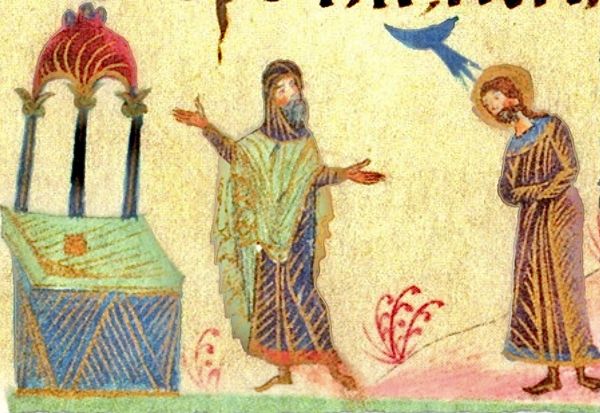In the parable of the Pharisee and publican, Jesus evangelises those who presumed to be righteous, despising others.
Francis always felt himself to be nothing before God, sinking into his humility like the seed in the earth.
He feared pride like the plague and detested it deeply.
To appear, to show off, to surpass, were verbs with which he never wanted to have any connection: he abhorred them.
We read in Celano's Vita prima:
"One day, full of admiration for the Lord's mercy in all the benefits bestowed on him, he wished to know [...] what would become of his life and that of his brothers.
To this end he withdrew, as he often did, to a suitable place for prayer.
There he remained for a long time, invoking with fear and trembling the Ruler of all the earth, thinking back with bitterness on the years that had passed badly and repeating:
"O God, be merciful to me a sinner!" (FF 363).
He feared all forms of boasting and ostentation of works; he abhorred feeling good and all kinds of pride.
In the Regola bollata (1223) to his brothers he said:
"I admonish, then, and exhort in the Lord Jesus Christ, that the brothers beware of all pride, vainglory, envy, avarice, cares and cares of this world, of detraction and murmuring" (FF 103).
In the Rule of Clare, in paragraph 2809 of the Sources, we find the same statement - as if to highlight the same concern: to keep a distance from all forms of vainglory.
Francis (and Clare too) perceived himself to be a great sinner, like the publican in the Gospel, who dared not even look up to heaven.
His humility and awareness of his own penury led him to assume a very low profile, without glorying in anything, neither before God nor before men.
Indeed, in his Admonitions, we read:
"Blessed is that servant who does not glory in the good that the Lord says and works through him, more in the good that he says and works through another. Blessed is the man who wants to receive from his neighbour more than he wants to give of himself to the Lord God" (FF 166).
And again:
"By this sign one can recognise the servant of God, if he has the Spirit of the Lord: if, when the Lord accomplishes something good through him, his 'flesh' does not take pride in it - since 'flesh' is always contrary to all good - but rather still considers himself vile in his own eyes and esteems himself smaller than all other men" (FF 161).
«O God, be gracious to me a sinner [...] for whoever lifts himself up will be brought low, but whoever lowers himself will be lifted up» (Lk 18:13-14)
Saturday 3rd wk. in Lent (Lk 18:9-14)












